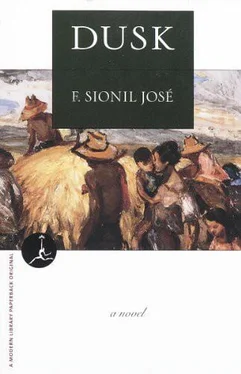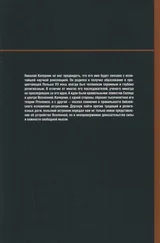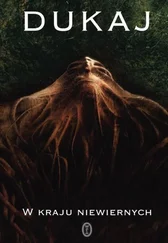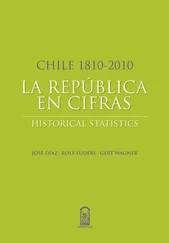Yes. The older people had fled the village, but they were children and they said the children were not harmed. As a matter of fact, the children were given candies. They were waiting for those candies.
He felt relieved; surely he could reach the president before the Americans did. He asked for a drink of water and they brought him a small pot from which he drank, savoring each sip.
The sun was once again a brilliant flood on the land. To his right, beyond the town, the hills were ramparts he must climb, and beyond, the mountains that fenced the Ilokos from Cagayan Valley — formidable ranges one after the other, and in the center Mount Tirad, straight and sharp. The pass was below this peak.
It would be a three-day hike — and already his legs stung where the thorns of bamboo had slashed, and his arms and face were hot with sunburn. He had not changed his clothes — they had been wet with perspiration and dried and they smelled.
It was dark at last and he had not eaten anything save the sugar cake that was for Kimat; he had slaked his thirst in the first stream that he crossed and his stomach was full. But God, he was tired. He could go no farther, and how his muscles ached! Wearily, he brought his knapsack and saddle down by a rock and the moment his head rested on it, sleep came like a balm banishing the day’s fever and fret.
Morning laves the shore towns of the Ilokos with the rich smell of harvest commingled with the salty tang of the sea. Though the nights were cold, the sun creeping up the Cordilleras brought warmth quickly. The day was clear, dew still sparkled on the grass, and in the yards of the houses, trash fires burned. He must be barely a day ahead of the Americans. Near Candon, at the first house where he went for a drink, he asked if they were near.
The owner of the house was a music teacher and his three young pupils, interrupted in the solfeggio lessons, sat idly by. Brass instruments — a battered trombone and a couple of trumpets — lay on the table in the kitchen, where he was taken for his drink. Istak always felt comfortable talking in his own language with his own people. If he were going to Cabugaw instead, it would take just two more days.
“I came from Cabugaw, Apo,” he said in deference to the man who was older and did not do manual labor. “I just want to know where the Americans are so that I can avoid them. They move quickly and without warning. In Bauang, I did not know they were already there. They hanged three soldiers right there in the plaza. And they shot my horse.”
The music teacher took him to the tiny living room. The house was not a farmer’s house, but it was not a rich man’s house either. Its walls were split bamboo, the roof was thatch, and only the wooden floor attested to the man’s more prosperous means.
“They will not find the people of Candon cheering them — if what they will bring are torture and vile words,” the man said evenly. He was past forty and had gray hair. “How long have you lived in Pangasinan?”
“More than ten years, Apo,” Istak said. He had finished the second glass of water, and had stopped perspiring.
“Only recently, did you know that we fought the Spaniards? We were overwhelmed, but we had proven we were not afraid of white men — Spaniards then, Americans now. Haven’t you heard about Candon and how the people here fought for freedom?”
He decided to be honest. “No, Apo. But I am glad to hear of it.”
The man took him down the road, telling him perhaps he had a better chance of getting a horse in Candon — if he could afford it.
Candon was one of the biggest towns in Sur, with a tall church majestically spired. To his right, the blue ridges of the Cordilleras beckoned with more urgency. There it was — unmistakable in the distance, the sharp and pointed outline of Tirad. The narrow trough to the left beneath it was where the president would go through. The trail up the mountain was flanked by huge trees, and the pass itself had been widened with forced labor by the Spaniards so that they could cross to the other side on horses.
The road from Candon led through ripening farmland, and farmers had started to harvest the bearded rice, which the Ilokanos preferred. It was a tedious chore — separating each stalk, then snipping each off with the hand scythe. The sheaves were piled in mounds in the fields to dry.
By midday, he had started to ascend the foothills toward Baugen. There were no more extensive farmlands up the hilly and forested terrain. The trees had been cut and there were cattle — he was in ranching country, for which Baugen was noted. It was here where dried meat was cheapest, and draft animals and horses were brought all day down to the plain.
It was hot. The dew on the grass and the morning mists that draped the low hills had vanished. The last creek which he crossed was warm, and warm, too, was the earth under his feet. Sometimes, a pigeon — gray and streaked with blue and red — would suddenly flutter ahead of him to seek a new canopy of green. He had rested and was suffused with his sense of well-being. Above him loomed Tirad — no longer as sharp and pointed as it first appeared from Candon. Now, it was a jagged summit.
Shortly after noon, he approached the fringes of Baugen. Down the ridge, in the narrow valley, the barrio was a huddle of thatch-roofed houses with a single street through them. Experience in the last few days had taught him to be so cautious on entering any town that it was often necessary to skirt it. He surveyed the approach and decided he should go to the left, parallel to the small stream that originated from the mountain and ran through a slice of rice fields and jackfruit trees.
The cogon was tall and he walked leisurely. He told himself later how lucky he was that he had followed his instincts. He was about to emerge from a stand of bamboo when he heard laughter. They were not Ilokanos laughing.
He dropped to his knees and peered through the thin veil of trunks and leaves. Close to the river was an American soldier in blue, his rifle resting in the crook of his arm, while below him, down the shallow incline, were a pile of blue-and-gray uniforms, rifles stacked, and beyond, in the clear waters, six soldiers were naked and washing themselves, their white bodies shining in the sun like newly washed radishes. They were huge men, hirsute and heavily muscled, with legs as thick as posts and such long penises which, upon scrutiny, he saw were not circumcised.
Beyond the creek were a dozen giant horses grazing on hay, four soldiers eating. His heart thumped so hard he thought it would break out of his chest.
He realized with quiet deliberation that he was not really afraid. Now he knew what the enemy looked like, and there came this exhilarating feeling that they were not gods, that they were like him, with soft flesh that could easily be pierced and their blood spilled.
He turned around to find out if there were other sentries like the man he saw at the bank. He listened for movement but there was none, merely the wind creaking in the bamboo around him, the rasp of his own breathing, and the thumping in his chest.
Did they know where the president was headed or were they just a patrol scouting a way through unfamiliar terrain? He did not tarry to find out. He crawled away from the protective wall of bamboo, crouched low, then circled in a wide arc, seeking the cover of high grass and thickets, all senses working, waiting for the crack of a rifle shot that would mark his doom. But after some distance, when no shot came, he knew he was safe from them. It was then that he realized he was in a cold sweat, his brow was wet and his shirt, and again the old fear was a reality that dried his throat and transformed his legs into heavy stumps of wood.
But he was safe, safe, and briefly, too, relief akin to pleasure welled in him and at the turn of the hill, his legs were his again, and he started to run toward Tirad.
Читать дальше












